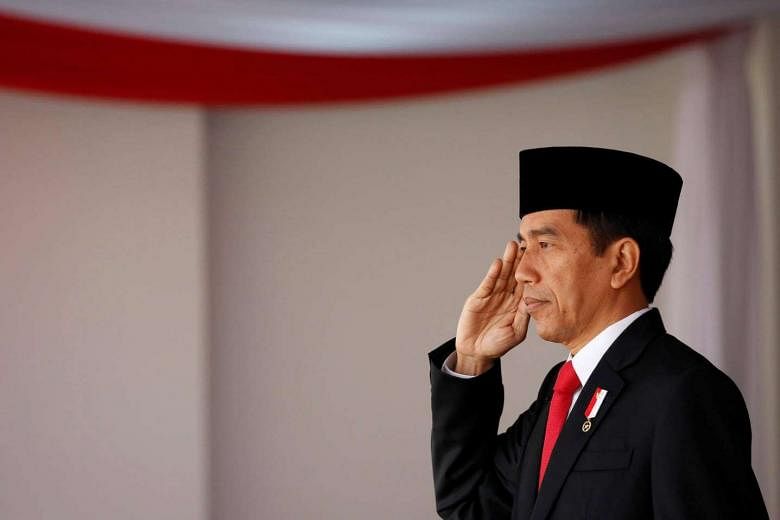SYNDEY (BLOOMBERG) - Indonesia's tax amnesty is too generous and may even hamper compliance in an economy already ranked as one of Southeast Asia's worst for collection, said the Organisation for Economic Cooperation and Development.
As President Joko Widodo's government starts counting receipts in a programme that aims to raise 165 trillion rupiah (S$16.88 billion) in revenue, the OECD has criticized the rates on offer. Under the amnesty, tax-avoiding individuals and companies would pay between just 2 per cent and 10 per cent in penalties, or around a third of what they should be.
"This treatment is likely to be substantially more favorable than the tax treatment awarded to fully-compliant taxpayers that have declared the assets from the outset," said Philip Kerfs, head of international cooperation in the OECD's Centre for Tax Policy and Administration, in an e-mailed response to questions.
Programmes that provide for a waiver of taxes are "unlikely to deliver benefits that exceed their true costs, but carry a risk of leading to an erosion of the gross revenue collected and may negatively affect overall tax compliance," he said.
Mr Widodo, known as Jokowi, wants fellow Indonesians to pay their fair share as he seeks to fund more than $400 billion of pledged infrastructure projects including ports, roads and railways. He faces a mammoth task: the country of 255 million people has an abysmal track record in tax compliance, with only about 900,000 of them submitting a tax return in 2014.
Indonesia's amnesty rates compare with corporate tax at 25 per cent and a top personal income levy of 30 per cent. The sizes of the one-off penalties depend on speed of participation and whether taxpayers only declare funds or repatriate assets as well. The OECD argues that the full dues should be paid to preserve the tax system's integrity and that non-compliant taxpayers shouldn't be treated better than compliant ones.
"The policy is expected to strengthen the foundation for broadening the tax base and increase taxpayer compliance in the future," Mr Jokowi said in a budget speech on Tuesday. The Finance Ministry's taxation director general didn't respond to phone calls and a text message seeking comment on the OECD criticisms.
For Indonesians stashing their wealth offshore, the writing was on the wall anyway, according to the OECD. The amnesty comes as a "large number" of countries, including Indonesia, publicly commit to adopting OECD standard regulation for tax reporting, said Kerfs. Indonesia is due to exchange information with other jurisdictions in 2018 under the new rules, while its tax amnesty only runs until March next year.
"It has become evident to a large number of persons who still have hidden assets abroad that the chances of their tax authorities detecting their tax evasion will further increase in the near future," said Kerfs. "Already now, it has become apparent that the political agreement to adopt the standard is having a positive impact on taxpayer behavior."
One month in, Indonesia's amnesty has raised 693 billion rupiah, or 0.4 per cent of the target, according to the Finance Ministry website.

